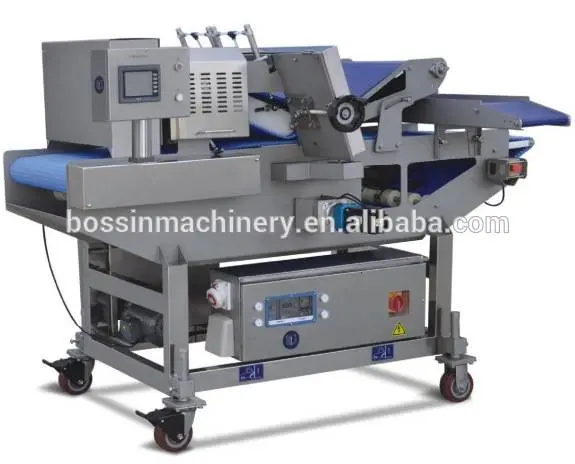
אוק . 18, 2024 18:30 Back to list
Rolling Equipment for Enhanced Manufacturing Efficiency and Performance Optimization
The Evolution and Significance of Rolling Machines in Modern Manufacturing
In the realm of industrial manufacturing, rolling machines play an essential role in shaping metals and materials into desired forms. Through processes like rolling, bending, and shaping, these machines have evolved over time, significantly influencing the production efficiency and quality of various products. Understanding the mechanics, applications, and advancements in rolling machine technology can provide insights into their critical place in modern manufacturing.
The Mechanics of Rolling Machines
Rolling machines, also known as rolling mills, operate on the principle of deforming or shaping materials through the application of force. This force is delivered through rotating rolls that compress and elongate the material passing between them. The most common types of rolling processes include hot rolling and cold rolling. In hot rolling, metals are processed at high temperatures, allowing for easier deformation, while cold rolling occurs at room temperature, resulting in a denser and stronger product.
The design of rolling machines has seen significant advancements over the years. Early models were simple, consisting of two rollers that applied pressure to the material. Today, we have complex, multi-stand rolling mills that incorporate features like automatic control systems, which enhance precision and efficiency. These innovations allow for the production of thin sheets, intricate profiles, and uniform gauges that meet the rigorous demands of various industries.
Applications in Different Industries
Rolling machines are utilized across a multitude of sectors, including automotive, aerospace, construction, and consumer goods. In the automotive industry, for instance, rolled sheets are used to create car bodies, providing strength while keeping weight to a minimum. Aerospace manufacturing employs rolling processes to shape materials that are incredibly lightweight yet durable, critical for aircraft performance.
In the construction sector, rolled steel is a fundamental component in beams, columns, and reinforcements for structures. Furthermore, in the production of consumer goods, rolling machines help fabricate items ranging from aluminum cans to intricate components in electronics. Their versatility and capability to work with various materials—such as metals, plastics, and composites—underscore their pivotal role in manufacturing.
rolling machine

Technological Advancements and Industry 4
.0As industries move towards Industry 4.0—characterized by the digitization of manufacturing processes—rolling machines have also adapted to incorporate smart technologies. These advancements include the integration of sensors, artificial intelligence, and data analytics, which enhance the operational efficacy of rolling mills.
Smart rolling machines can monitor real-time data to predict maintenance needs, reducing downtime and extending the lifespan of the equipment. AI-driven algorithms can optimize the parameters of the rolling process to maximize yield and minimize waste, ultimately resulting in cost savings and more sustainable operations.
The Future of Rolling Machines
The future of rolling machines appears promising, with ongoing innovations poised to transform their functionality. Further advancements in automation and robotics may lead to fully autonomous rolling mills that require minimal human intervention. Additionally, advancements in materials science could result in new compounds that enhance the performance of rolling processes.
Sustainability is another critical focus area. Manufacturers are increasingly adopting eco-friendly practices, and rolling machines can play a significant role in reducing energy consumption and material waste. Research into alternative, renewable resources could expand the applications of rolling processes beyond traditional materials.
Conclusion
Rolling machines are an integral part of modern manufacturing, shaping the materials that form the backbone of numerous industries. With their evolving technology and applications, they not only enhance production efficiency but also contribute to sustainability initiatives within the manufacturing sector. As we move forward, the continuous innovation in rolling machine technology will likely drive further advancements in manufacturing practices, redefining efficiency and quality in production processes.
Latest news
-
Pneumatic Clipping Machine- Shijiazhuang Bossin Machinery|Sausage Production Line, Food Processing Machinery
NewsAug.05,2025
-
Pneumatic Clipping Machine-Shijiazhuang Bossin Machinery|Precision, Efficiency, Durability
NewsAug.05,2025
-
Pneumatic Clipping Machine-Shijiazhuang Bossin Machinery|Precision Sausage Production&Efficient Clipping Technology
NewsAug.05,2025
-
Pneumatic Clipping Machine: Sausage Production Efficiency & Advanced Tech | Shijiazhuang Bossin Machinery Equipment Co., Ltd.
NewsAug.05,2025
-
Servo Motor Sausage Cutter Spare Parts | Precision Components
NewsAug.05,2025
-
Premounted Side Disc for Efficient Operation - AI-Enhanced
NewsAug.04,2025